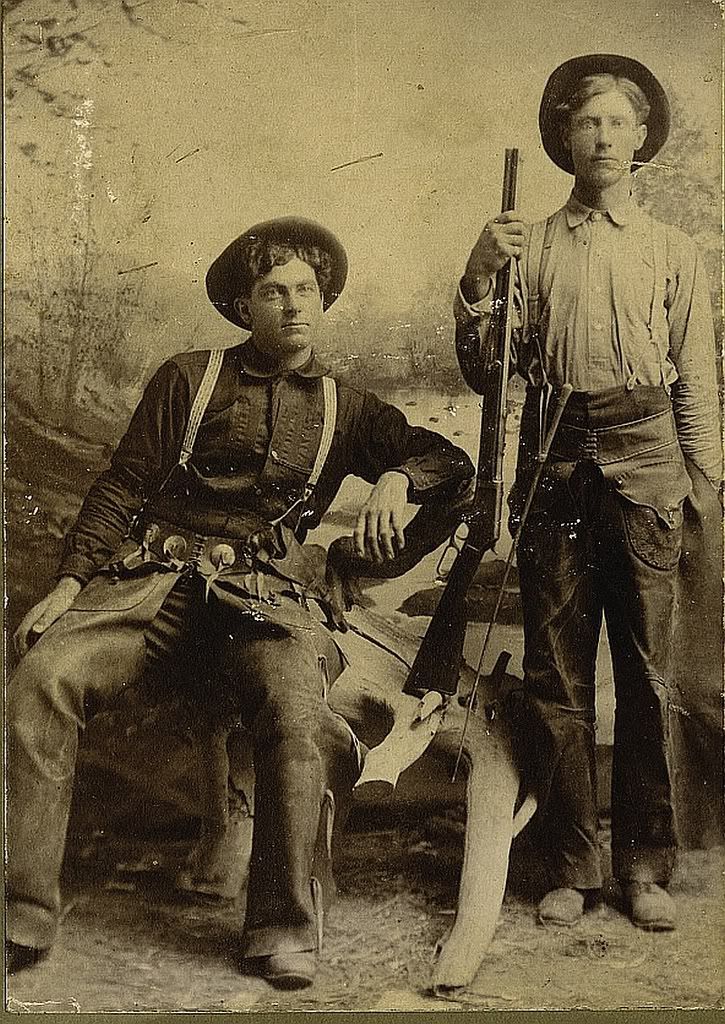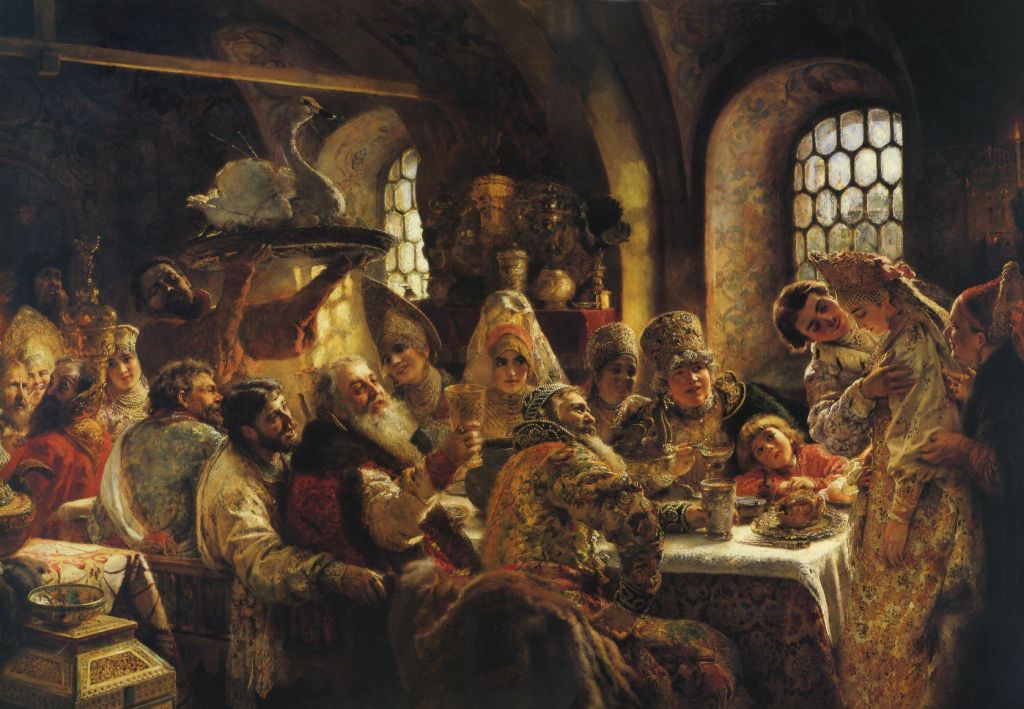Awhile back I took Sam for a walk in the woods. While we were out I had what to me was a very good idea for a short story – a Western.
The story is basically this. A bounty hunter goes out looking for a small gang of outlaws. His dog finds a young boy, about 15, who has been taken in by the two outlaws. One of the outlaws shoots the bounty hunter’s dog and the bounty hunter kills the two outlaws, and then makes the boy help him rescue and save his dog from dying of the gunshot. (Which they do at the time.)
The bounty hunter decides to himself that as they’re saving the dog that he will sort of adopt the boy and turn him from his previous life of outlawry.
Though he never really comes out and legally adopts the boy or gives him his name. He does give the boy an alias that was his grandfather’s name, the same grandfather who had raised him, though the boy doesn’t know that until much later.
Anywho I liked the story so well that I came home and spent most of the afternoon working it when I wasn’t having to do other things. It will be sort of a long story; I’m to fifteen hundred words already.
It doesn’t run from beginning to end yet, I can see the whole thing in my head but I’ve been writing down the scenes as they come to me. The lines are scene break points. Like I said it’s not woven together yet, just scene parts. Some in order, some not. It’s told form the point of view of the main character, Thomas Hodgkins.
If you wanna comment then you’re welcome to.
There’s some cussing in a good cause at a few points, nothing gratuitous. It’s man-cussing, out of anger. But I’ve warned ya, so you know it’s there.
It’s called, A Man, His Horse, His Dog, and a Boy.
Have a good one folks. I’ve got a lot to do today, but hope you enjoy it.
* * *
A MAN, HIS HORSE, HIS DOG, AND A BOY
____________________________________________________
“Oh, a little Irish tow-head, huh?” he said. “Well, nobody’s perfect.”
____________________________________________________
“What’s your name boy?”
“Thomas,” I told him. “Thomas Clancey.”
“Well, Thomas Clancey, just by fortuitous accident my grandfather’s name was also Thomas. So I kind of fancy you keeping that part. As for the Clancey you’re gonna lose that.”
“Why?”
“In case that name is attached to any robberies or other outlawry.”
I thought about that awhile as we walked.
“What’s gonna be my last name then?”
“Well, let’s see… my grandfather’s last name was Hodgkins. So you can be a Hodgkins from now on.”
Thomas Hodgkins. It seemed okay.
“What’s your last name?”
“Wellford,” he said. “But you don’t want my last name.”
“Why is that?”
He stopped moving. The question seemed to surprise him.
I could see him thinking a bit and then he seemed to catch himself. So he clicked his tongue and set his horse back to walking again.
“You just don’t kid. You just don’t,” he finally said.
__________________________________________________
“I hate you!” I said. “They mightna been much but they was all I had, and they were partners with my pa, and you killed em.”
He turned on me like a copperhead and for the very first time I saw a black fury rise up in him that froze my blood.
“Tough shit!” he hissed, and his hiss was louder than a close wolf howl. “Those two was outlaws and murderers and horse-thieves and train robbers and I’m glad I killed them and if you turn out like that boy I’ll gladly kill you too.
Shoot my dog, threaten me, kill women, raise a little boy to be a piece of shit like them. Goddamnit!” He reached out and grabbed me by the collar and yanked me almost off my feet, then threw me to the ground like a dead, skint hare.
Then he pulled out his gun and pointed it straight at my chest.
“Boy, you learn one thing and you learn it right now – this very second. You ain’t gonna be like that. You ain’t gonna be no damned outlaw, not anymore, not never again. Or I’ll kill you right now and save us both the trouble.”
He trembled at the trigger for a moment as if considering whether I was really worth killing. I closed my eyes and waited.
Then he exhaled loudly and seemed to get ahold of himself again. At least for the moment. I opened my eyes to see him look at the gun, then at me, then back at the gun. He raised his pistol into the air and fired three times in quick succession. I flinched at each shot
“Goddamnit!” he shouted. “Do you want me to shoot you right now because I can do it and leave your body for the buzzards and scorpions? They gotta eat too.”
When I didn’t reply he almost whispered, “Well, do ya?”
“No…” I said tightly. I was furious inside as well but too afraid to show it.
He holstered his gun, kicked sand in my direction, and then lowered himself to stare straight in my face.
“From now on boy you’re not gonna be no outlaw. You’re not gonna be like those two bandits I killed and you’re not gonna be like your robbing, murdering old man. You’re gonna be something different. Very different. Now git off the ground and stand up like a man afore I decide to beat you senseless.”
I stood up unsurely and he raised himself to his full height but didn’t threaten me anymore.
“Now repeat after me,” he said. His sense of calm was returning, and for some stupid reason my sense of defiance kicked back in.
“And what if I don’t care to repeat after you old man?” I said.
He shook his head slowly and then slapped me so hard across the face that I fell to the ground again.
“Let’s keep up this bullshit til one of us gets tired of it boy. Wanna lay odds on who that will be?”
I was still angry, but didn’t particularly favor my odds.
I stood up.
“Now repeat after me boy.”
“Okay,” I said.
“I will not be no murdering outlaw like my old man and his no count cutthroats. I don’t have to hate my natural father but I sure as hell ain’t gonna become him.”
I repeated what he said, word for word.
“I’m gonna become something different. Very, very different.”
I repeated it back to him. He seemed satisfied.
“Now boy, you’re gonna keep repeating that to yourself, every day and night until you actually mean it. Until it sinks in. Until it sticks. And then you’ll actually be different.”
I thought about that a second and then said coldly, “Different how? You mean I’m gonna become a lawman or a bounty hunter like you?”
He looked down at me.
“Hell if I know boy, and damned if I care. But you are gonna be different. You can be a cowboy, or a ranch hand or businessman, or a mayor, or a sheriff, or a doctor, or a priest, or a teacher or a circuit riding preacher for all it matters to me. But from now on you’re gonna be different from anything you’ve ever been before. From now on you’re gonna be a real man. We’re both gonna see to it.”
He walked over to his horse, cinched his saddle tight, and adjusted his rifle.
“Now mount up. We’ve got a lotta work to do.”
While he mounted I walked over to my horse, cinched my own saddle, tested it, and swung myself up. When I was set I looked over at him and said, “I’m ready.”
He looked at me, spat, wiped his mouth, and then almost smiled. He reined north and turned away at a trot.
“We’ll see boy, we’ll see,” he said to himself.
And that drifted back to me and kinda stuck in my craw.
____________________________________________________
“You gotta kid of your own?” I asked
“Nope,” he said flatly.
“Gotta woman?”
“Nope to that too boy.” He paused a moment to rest, took off his hat, and swiped his brow. He looked out over the long horizon. He was quiet awhile and then he spoke again.
“Maybe one day I will, maybe not, but iffin I do then she’ll just have to understand that you’re part of the package now. She’ll have to get used to that.”
I didn’t know what to say, but he seemed awful serious. I looked at the ground speculating on what he might mean exactly and then I heard him continue on. I looked up to see him moving away from me and so I started walking again to catch up to him. It didn’t take long, he was lingering for me.
___________________________________________________
“That was the best damn dog I ever seen.” I said.
“Don’t cuss about old Pete,” he answered. “He deserves your respect.”
I didn’t mean anything by it, nothing bad anyway, but didn’t know if he knew that.
I looked in his direction to see if he was mad and he turned to face me. I swear I saw a tear in one eye, but then it disappeared faster than a foxfire.
He looked at me hard for a long time after that and then he reached out and wrapped both his hands around my shoulders and pulled me in close and hugged me like I imagined an old bear would. Then he pushed me back and let me go, looking away at something only he could see.
“I know son. I know exactly what you meant. That was the most fetching dog I ever had.” His voice almost choked, but he wouldn’t let it.”
Then he looked right at me. “And you were the best thing he ever fetched me. So to hell with it all, you’re right as rain. Don’t pay me no heed. He was a helluvah dog, wadn’t he, and he’d have much appreciated your comment.”
He smiled at me and maybe for the first time ever I saw inside him. Right inside him. And he didn’t bother to look away.
“Now if you’ll excuse me I’m gonna go bury Pete deep enough the coyotes can’t get at him, shallow enough God can raise him anytime he wants to.”
I didn’t know what to say so I asked him, “Do you want me to go with ya?”
“No,” he said. “This is my job. I was there when he was born, I’ll bury him now.”
He picked up his working hat, rolled up his sleeves, and then went to closet and took out his shovel. Then he walked to the door and opened it, but before he stepped out he half looked over his shoulder back at me.
“My job is to bury Pete. Your job will be to bury me.”
Then he shut the door and left.
I walked to the window and through the dusty and uneven glass I saw him wrap the blanket tight around old Pete, lift him gently into the wheelbarrow, place the shovel over his body and start off towards the desert. With the sun running down towards twilight the dark took him quick.
So I oiled a lantern and left it lit on the table for when he returned. With any luck he’d be back before it died.















You must be logged in to post a comment.